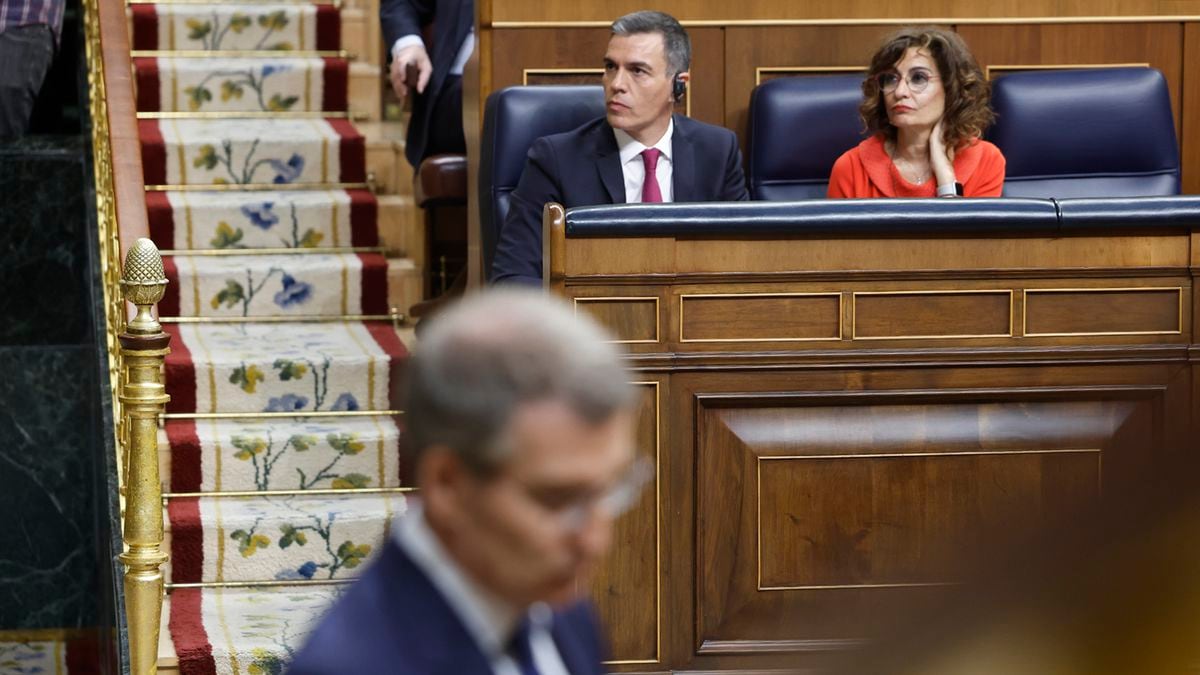The political map of Europe is cracking. With the so-called
Spotify democracy,
voters enjoy an increasingly personalized electoral offer; and parliamentary fragmentation has made single-color governments almost disappear from the continent. The fragility and heterogeneity of national executives inevitably have an impact on the functioning of the EU because the EU institutions often lack strong and stable partners. Between February 2020 and December 2021 alone, 10 of the 27 presidents of governments who sit in the European Council, the highest political leadership body of the EU, have changed. Despite this, Brussels is getting used to running a multi-colored club and the experience of the pandemic shows that big deals are possible.
Analysts identify several causes for the dispersion of the vote. From the dilution of traditional social classes to disaffection with political parties that have suffered a drain on votes and affiliates or even, paradoxically, the desire to try alternative formulas thanks to the tranquility provided by a welfare state built by Christian Democrats and Social Democrats . In any case, democracy a la carte has spread throughout the continent and has ended, for the moment, with the electoral menu that barely offered two dishes to choose from.
"Political fragmentation, first of all, is a fact, beyond any value judgment," says Doménec Ruiz-Devesa MEP, rapporteur for the draft reform of the European electoral law that, if it is concluded on time, will govern the 2024 elections for the European Parliament. Ruiz-Devesa acknowledges that greater ideological diversity "makes decision-making more difficult." But he considers that the multiplication of actors "also highlights the need to reach consensus that has a broader social support."
Sophie Pornschlegel, a senior analyst at the European Policy Center (EPC) specializing in the European political map, agrees that “electoral fragmentation in itself is neither good nor bad, it all depends on the context”.
And it points as proof the case of Germany, where the existence of a culture favorable to negotiation and consensus generates broad majorities and cohesive governments.
On the other hand, the EPC analyst points out that “in the EU, stable governments are needed because if there is a continuous change, as we are seeing in Romania or Bulgaria, the position of these countries in community debates is no longer clear and may have an impact. in the functioning of the European institutions ”.
Community sources acknowledge that the continuous ups and downs in some capitals make the EU's gears squeak and may weigh down the momentum required by community initiatives. The complicated coalitions, with the sum of parties with sometimes very conflicting interests, also causes, according to these sources, that the negotiators of the Government of the day arrive in Brussels without a clear position on the most controversial issues.
Turnover in most capitals reaches such speed that only six of the 27 members (not counting the United Kingdom) sit in the current European Council at the end of 20 16 (the year of the Brexit referendum). After the departure of Angela Merkel, the oldest has become the Hungarian Viktor Orbán, who came to power in 2010, just a few months before the Dutch Mark Rutte, the second most resistant leader.
Ignacio Molina, principal investigator at the Elcano Royal Institute and professor in the Department of Political Science and International Relations at the Autonomous University of Madrid, recalls that until the 1990s the European Council was made up of “stable leaders, with very broad electoral mandates”.
In the era of Helmut Kohl or François Mitterrand there were hardly any replacements in the Council chairs "and that allowed establishing bonds of trust and agreements for today for you, tomorrow for me, which are now almost impossible because continuity is very doubtful", he points out. Molina.
Sánchez, in three years, already one of the veterans
The researcher points out as an example of the prevailing volatility the fact that in the European Council “during the first three and a half years of Felipe González as President of the Spanish Government, only the Prime Minister of Italy changed. During Pedro Sánchez's three and a half years, a third of the 27 members have changed and the Spanish prime minister is now almost one of the veterans ”.
Governments not only tend to last less but also require more parties to add the necessary parliamentary majority. Germany launched the first tripartite government in six decades in December. Spain has had the first coalition since the democratic restoration since 2020. Bulgaria has needed three elections this year to reach a four-party government last week that still only has a very tight parliamentary majority. Austria is running for the eleventh chancellor in 20 years. And the Netherlands, whose 150-seat parliament sits 19 parties, has taken nine months to reach an agreement for a coalition government after the March elections of this year and a new Executive is not expected until January 2022.
Pawel Zerka, an analyst at the ECFR (European Council on Foreign Relations) study institute, describes the phenomenon as “Spotify democracy”, alluding to the digital platform that has revolutionized the music distribution system with an almost unlimited supply.
Zerka believes that it is still too early to know if the current political fragmentation is "a long-term trend or just temporary."
The analyst believes that fragmentation could evolve towards “a consolidation around the old parties or the new ones”, or else, become a permanent feature of democratic systems.
"Just as people have begun to diversify their tastes and preferences, we could see a world in which political sympathies are diversifying much faster than in the 20th century."
Parliamentary atomization is visible in almost all countries, regardless of their institutional models or electoral systems.
In France, it has gone from the four parliamentary groups during the first term of President François Mitterand (1981) to the nine groups in the Assembly with which the Government of Emmanuel Macron deals.
In Germany, Christian Democrats (CDU / CSU) and Social Democrats (SPD) added almost 82% of the votes in the 1987 elections, the last before the reunification of the country.
And in 2003 they still held 499 seats out of 603 in the Bundestag.
Furthermore, both parties alternated in power and only once had to join forces in a grand coalition during the second half of the century (in 1966) due to the impossibility of forming a government on their own with other allies.
During the Angela Merkel era (2005-2021), however, the Chancellor was forced to form a grand coalition during three of her four terms, despite the resentment that this formula provokes among many voters because they considered that it emptied the democratic competition.
In addition, in the elections last September, the two main forces did not even add 50% of the votes.
And the new chancellor, the social democrat Olaf Scholz, comes to power with an electoral support of 25.7% and the need to form a three-way executive with greens and liberals.
Tripartite by force
In the 2019 European Parliament elections, the two great political families, Christian Democrats (PPE) and Social Democrats (S&D) for the first time fell below 50%. And they were forced to count on the votes of the third political group, the Renew Liberals, to reach the majority of seats necessary for the appointment of the new European Commission with Ursula Von der Leyen (PPE) at the helm.
The socialist MEP Ruiz-Devesa considers that this European tripartite is not a bad sign for the functioning of the EU, but quite the opposite. "Unlike before, now we must have at least the liberals and, sometimes, the greens, which is better because the approved measures have greater social support and, therefore, we are reinforcing the European project," he says. Ruiz-Devesa, member of the Constitutional Affairs Committee of the European Parliament. And he adds that this alliance of moderate forces could also be the appropriate response in many national electoral spaces.
The truth is that neither the instability of the members of the European Council nor the fragmentation of the European Parliament have prevented a strong community response to the covid-19 pandemic, which struck as soon as the European legislature began (2019-2024). The EU approved in record time a safety net of 540,000 million euros, including 100,000 million in loans to finance temporary employment regulation (Spain has received 21,300 million). And the Twenty-seven doubled the EU budget framework (up to two trillion euros) with the creation of a recovery fund endowed with 800,000 million euros (Spain has already received 19,000 million, 27% of the subsidies that correspond to it).
The European Commission has also coordinated an unprecedented joint purchase of vaccines, which has made it possible to reserve 4.2 billion doses of which 1 billion have already been distributed.
The covid certificate to accredit vaccination during travel, also approved in record time, has already been recognized by 60 countries and 1,000 million copies have been issued.
The health and economic emergency has helped foster a vital consensus in the face of an unprecedented crisis.
And the emergence of extreme eurosceptic forces, which caused the EU to hit rock bottom with the Brexit referendum in 2016, has also made it easier for more or less traditional political parties to close ranks around the European project.
A renewed European force?
But researcher Ignacio Molina warns that it is still too early to gauge whether this renewed strength of Europeanism is something more than a mere mirage.
"When the center-right and the center-left are grouped around a Europeanist and liberal idea, the opposition's monopoly is left to the extremes and they can gain strength," says the Elcano analyst.
In the current European chamber, Eurosceptics already have around 147 seats, which would allow them to become the third most powerful group in the chamber.
But these forces also suffer disintegration and, at least for the moment, have not been able to unite around a common project and leadership.
The extremes of the political arc suffer, precisely, centrifugal tendencies in which each new faction is more fundamentalist than the previous one and drags a part of the vote. Several EU countries set a minimum threshold for the percentage of votes to access the seat and thus avoid a multiplication of tiny groups in parliaments. And the Twenty-seven agreed in 2018 that the threshold would oscillate between 2% and 5% in the case of elections to the European Parliament, but that decision never came into force because Germany and Spain have not ratified it.
The new European electoral law project, with Ruiz Devesa as rapporteur, deletes the reference to the minimum percentage of votes, although the MEP points out that “de facto, in all countries there is a type of threshold, whether explicit or indirectly between the number of seats and the fixed allocation formulas ”.
Analyst Pawel Zerka warns against the temptation to take advantage of electoral regulations to try to leave certain formations out of the parliamentary game. "Setting high thresholds or other constraints can make many people perceive that they are not represented or that the structure of the parliament does not correspond to the true political division of the country, which leads to feeling frustrated with democracy," says Zerka. Researcher Sophie Pornschlegel believes that, in any case, Europe "is not going to go back to the 1950s or 1960s with dominant parties" and recommends "getting used to dealing with the new parties".
Ignacio Molina regrets that the electoral explosiveness of recent years has inoculated in the rulers "the fear of assuming a leadership that could lead to punishment at the polls, which is why short-termism marks the decisions."
But the Spanish researcher also concludes that "politics has become more difficult, but not impossible."
Or as Daniel Innerarity would say, quoted by Zerka, "democracy is the system of government most capable of managing complexity."
Follow all the international information on
and
, or in
our weekly newsletter
.

/cloudfront-eu-central-1.images.arcpublishing.com/prisa/LAL4C5BPY74XGD5JVLBL4T7STE.jpg)







